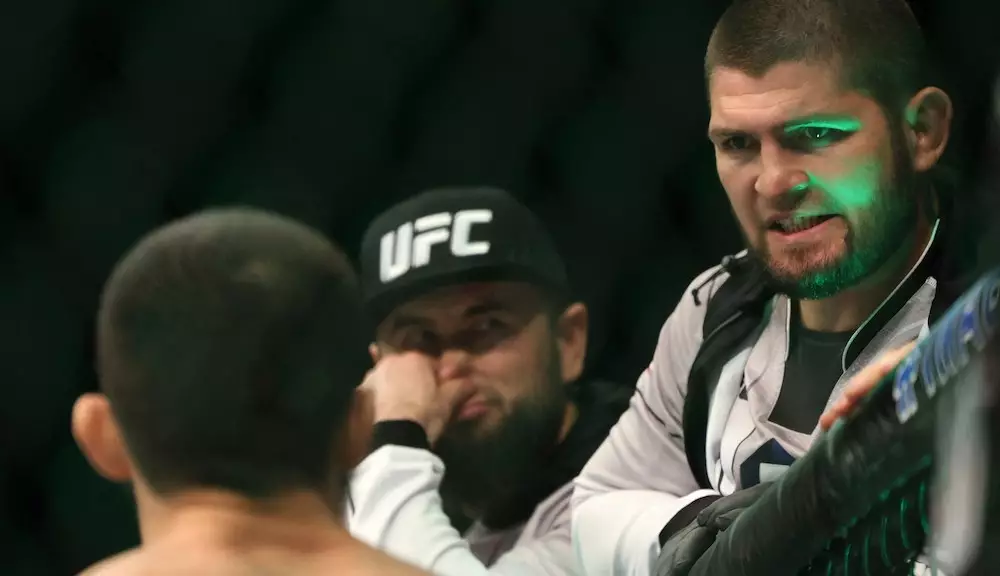Khabib Nurmagomedov’s life story is a testament to transformation and resilience. After an illustrious career marked by his undefeated streak in the UFC, Nurmagomedov shifted gears from the octagon to the gym, taking on the role of head coach for Team Eagle. Despite his success, this transition has proved to be far more challenging than he had anticipated. For Nurmagomedov, the thrill of combat was supplanted by the nuanced demands of mentorship. The psychological toll of being removed from the competitive fray has presented unexpected hurdles; a poignant reminder that the skill set of a fighter is drastically different from that required to effectively coach.
In his own words, Nurmagomedov confessed to ESPN, “I didn’t know it was going to be so hard because when I was fighting, it was more easy for me.” This quote encapsulates the essence of his struggle; while a fighter’s experience is often about personal preparation and execution, coaching involves a broader responsibility towards others. Being a mentor means offering advice and guiding athletes through their own journeys, often feeling helpless as they face opponents alone. This sense of extraction from the immediate action has been a “little bit of a headache” for him, highlighting the emotional weight of watching from the sidelines instead of being the one in the cage.
Nurmagomedov’s coaching role isn’t merely a nostalgic return to the sport—it’s a deeply rooted sense of obligation. He emphasizes sharing the extensive knowledge gained from both his own career and the teachings of legendary coaches like his father, Abdulmanap Nurmagomedov, and Javier Mendez. “I’m trying to share my knowledge with my brothers because I learned a lot from fighting myself,” he stated, showcasing his desire to uplift the next generation. This commitment to mentorship is commendable and reflects his dedication to the sport and its community. By grounding his coaching in lived experience, he provides invaluable insight that can shape and guide young fighters through the rigors of training and competition.
The culmination of Nurmagomedov’s efforts was showcased during pivotal championship fights at UFC 311, which included high-stakes matchups featuring political mentees like Islam Makhachev and Umar Nurmagomedov. Their endeavors not only tested their mettle but also represented Nurmagomedov’s evolution as a coach. The pressures of competing at such high levels loom large, and as he continues to navigate this role, Nurmagomedov remains a pivotal figure in a rapidly changing landscape of mixed martial arts.
Ultimately, while the shift from fighter to coach is fraught with challenges, Khabib Nurmagomedov’s resilience and commitment to nurturing talent demonstrate that this journey is pivotal, not only for him but for the future of the sport. His legacy as a champion will forever be entwined with the success and growth of those he chooses to mentor, echoing the sentiments that sometimes the most significant impact is made outside the cage.

